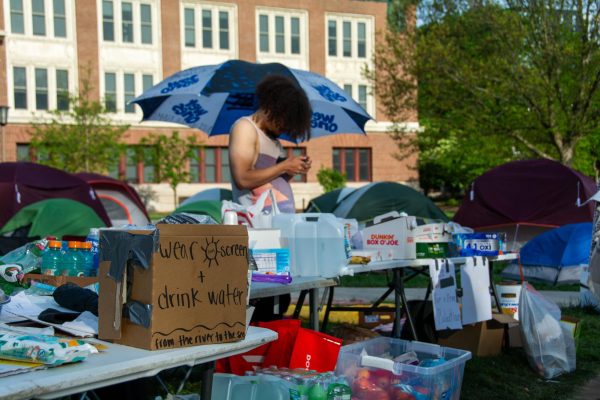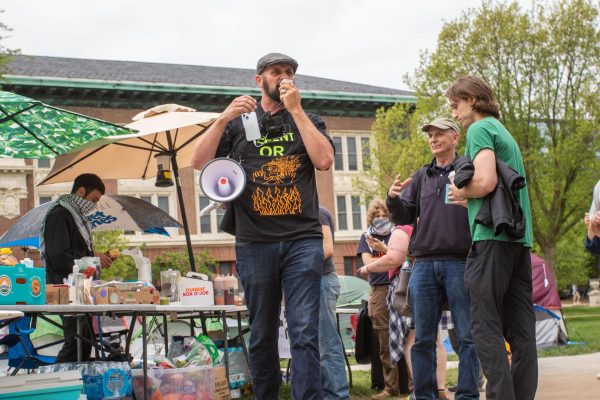Bioscience Journal Club promotes research opportunities
October 9, 2017
For many students, research is an ambiguous area. Many freshmen and even upperclassmen struggle to get started. The Bioscience Journal Club, a new RSO on campus, is making it easier to get involved in research.
Started by a group of current juniors and seniors, the Bioscience Journal Club hopes to unite scientists to review research papers and gauge a newfound understanding of recent studies.
Kelly Fahey, president of the club and senior in LAS, was inspired to start the Bioscience Journal Club because of her overwhelming experiences in a research lab her junior year.
“It’s so hard to get into research here,” Fahey said. “A lot of students have really poor experiences in research labs. We wanted to create a space where students can learn about research opportunities on campus, a place where they can build academic skills like reasoning and critical thinking that they can also apply to their classes.”
Lois Suh, club director and junior in LAS, previously worked with Fahey in a research lab.
Get The Daily Illini in your inbox!
“Our research had mandatory journal clubs for reading research papers and presenting them with our peers,” Suh said. “The first time we did it when we joined, it was a struggle for us. It was definitely confusing.”
Nathan Petrikas, internal director and junior in Engineering, said students are often thrown into an unfamiliar, fast-paced lab environment, surrounded by esteemed professors and experienced graduate students.
On top of that, he said students are expected to know exactly what they are doing, especially when presenting results or articles to the research group; however, most newcomers have little to no prior knowledge on this topic.
To avoid confusion and panic in such daunting situations, the new RSO engages members during general meetings by involving them in the detailed process of reviewing an article.
Bioscience Journal Club had its first meeting on Sept. 19, attended by approximately 20 aspiring researchers.
The board members spent the summer developing interactive, multidisciplinary meeting plans in which members look into topics they are interested in and present articles on those topics.
Supriya Bhuvanagiri, marketing director and junior in LAS, created Bioscience Journal Club’s website and filled it with information about decoding articles, upcoming seminars on campus, and current molecular and cellular biology faculty research.
“It’s a learning process for us too, as we try to share that knowledge with other students who want to get involved,” Bhuvanagiri said. “We had a lot of interested freshmen at our first meeting. It’s really exciting to see someone as excited about research as we are.”
Bioscience Journal Club focuses on skill building since most meetings are member-led. Members learn how to work promptly, but also how to speak confidently in front of their peers. By breaking down an article into manageable chunks, a newcomer can gain a more in-depth understanding of the abstract, methods and lengthy discussion section.
“We are also trying (to) bring awareness for relevant topics that are in the news,” Suh said. “We prompt our members to submit articles they find very interesting and would like to learn more about.”
The RSO is looking to build both academic and social connections.
Next semester they want to bring in faculty researchers, allowing members to interact with professors and get their questions answered directly. Members can make faculty connections and potentially obtain a research lab position.
Bioscience Journal Club fosters a lighthearted, fun environment as well. Fahey said that at an upcoming meeting, all the members will go out for ice cream together.
“We are planning to expand so that our journal club meeting is for an hour, but the hour afterward is for networking,” Fahey said.
Bioscience Journal Club hopes to inspire students to step out of their comfort zone and dive into new fields of research, ranging from bioengineering to computer science to community health. Bioscience Journal Club meets bi-monthly on Tuesdays, welcoming a variety of majors.
“We want to make our peers more comfortable with what research is,” Petrikas said. “We want them to have confidence when they enter a research lab.”







